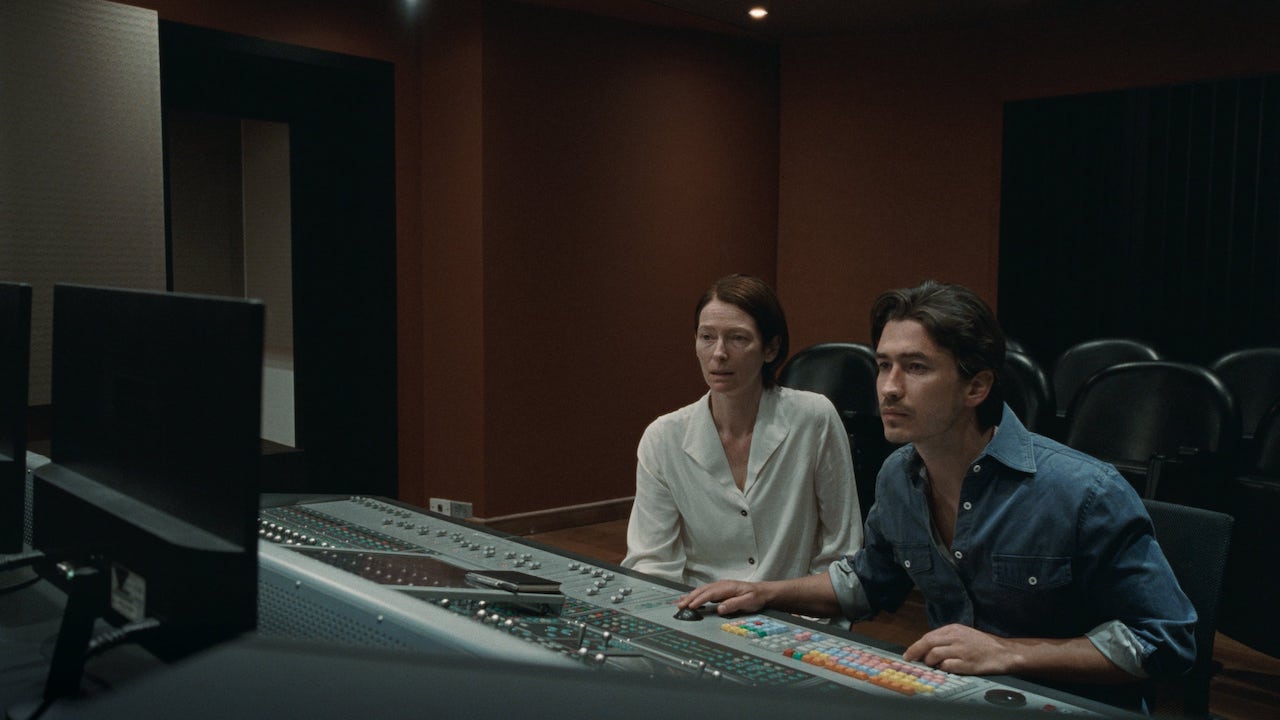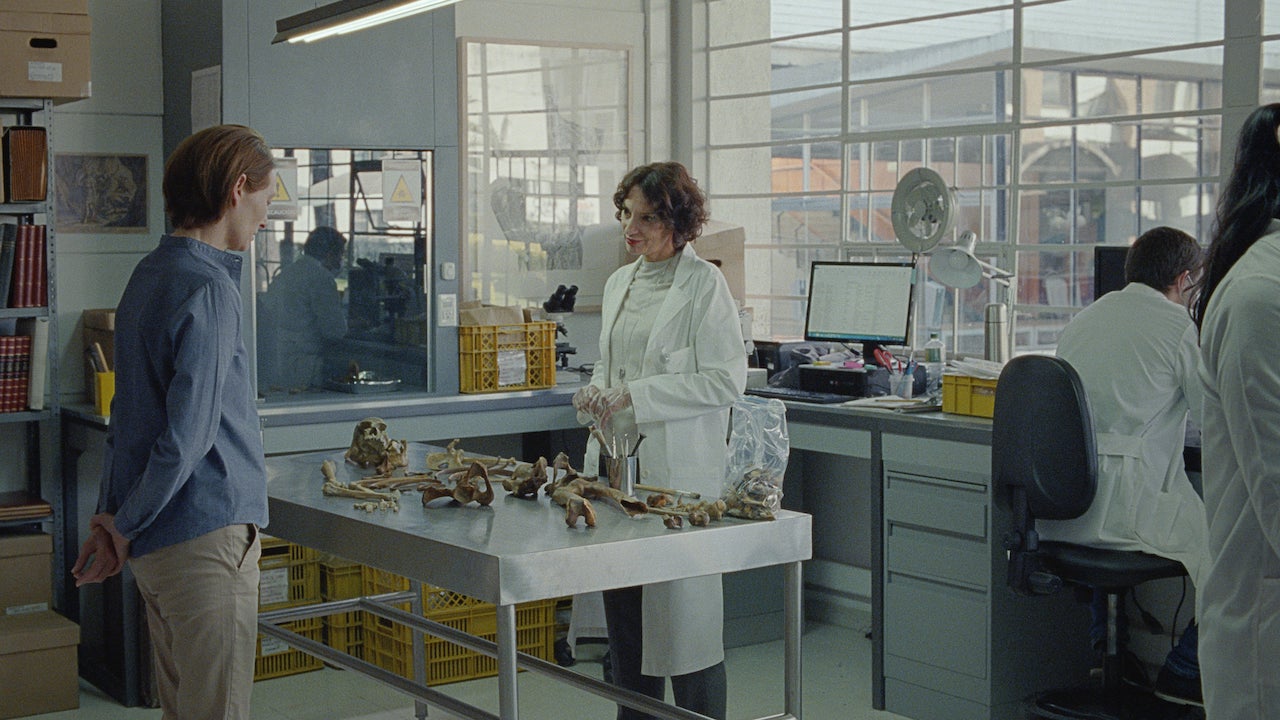Weerasethakul’s Memoria finds jarring cosmic mystery in the sounds of silence

Tilda Swinton is haunted by an undefinable far-off sound, in Apichatpong Weerasethakul’s Cannes success Memoria. Eliza Janssen tries her hardest to define it.
There’s a mysterious booming sound echoing through the streets of Bogotá, Colombia, and only Tilda Swinton—and we, the audience sitting transfixed before her—can hear it. It’s a privilege to be included in the sinewy Scottish actor’s visions, whether they’re delusion or some grand spiritual conspiracy.
We need not expect independent Thai director Apichatpong Weerasethakul to ever deliver a simple, satisfying answer to the strange noise. In his Cannes-winning forest fantasy Uncle Boonmee Who Can Recall His Past Lives, ancestors and monkey ghosts came and went with a placid, unforced kind of magic. The mysterious storytelling of his newest film can be counted on to say more about absence, vacuums, voids, oblivion, than any concrete expository conclusion… although I will say there’s a single CGI-heavy explainer shot that will surprise and confound arthouse viewers.
Jessica (Swinton) sure needs to know what’s going on, slowly becoming obsessed with describing and then attributing the cacophony. In the opening scene, it wakes her from a profound state of off-screen slumber, the first of many soundtrack interruptions. Memoria will certainly be best remembered for its meditative, “slow cinema” style, but I was more jarred by all the random, irritating noises Weerasethakul subjects us to, even beyond that unidentifiable cosmic gonging.
Chairs scraping, a bus backfiring like a gunshot, one crawling zoom into a car park where every single car’s alarms suddenly begin to blare: he’s testing our patience, and it quickly puts us in the same mindset as Swinton’s haunted visitor.
My favourite scene comes early on, when Jessica visits a young audio engineer (Juan Pablo Urrego) to create an aural Identikit of sorts. He’s kind and understanding as she tries to pinpoint the qualities of the noise that’s stalking her: “It’s like a big ball of concrete that falls into a metal well which is surrounded by seawater.” Okay, should be specific enough.

As the engineer hones in on the sound by filtering and replaying a similar clip, we cut to a shot of Swinton’s back. She grows more and more disturbed with each loop, neck and arms flinching almost imperceptibly. It’s a wonderful moment of back-acting where our attention is entirely rewarded, by the perspective of the filmmaker and the harmonic talent of his star. Later on, a man who may or may not be an older version of this same sound engineer calls Jessica an “antenna”, and that descriptor goes for the sensitive performer, too: Swinton is so capable of channeling whatever ineffable energy her auteur seeks, radiating the film’s story of boundless tranquility and mystery with or without dialogue.
Before Jessica and the film’s gaze take to the mountains, searching for the sound’s origins in the secrets of the primal world, Memoria is also grounded by visits to expert supporting characters. Practically everyone we meet is a virtuosic genius at their niche job, and they’re all happy to share their latest findings. All the emotional and visual detachment of universities, labs, studios provides a poised new angle through which Weerasethakul can again encounter the void. Herself an orchidologist, Jessica keenly reads up on fungi at the library before being shown ancient human remains by a new archaeologist buddy.
It’s striking stuff, a long-forgotten skeleton with a hole puncturing its skull: you might feel similarly penetrated as the film’s second hour wanes.

We’re journeying into oblivion with Jessica for most of the film, worrying for her in the more chilling and tense scenes—the lights dying at a gallery, leaving her stranded in a darkened corner like a new acquisition. But she leaves us behind at some point, realising a new agenda that’s beyond our understanding (or mine, at least) once she’s within the gusty, howling mountain ecosystem. She’s been helping us to investigate this “impossible” sound, and some audiences will be frustrated to be left alone in our search for meaning—others should appreciate the peaceful implication that even expertise, time, and curiosity cannot uncover everything about our human experience.
As suggested by its title, Memoria looks back over the remnants of life on earth, as much as it looks forward to an unknowable fantastic future. We try to grasp at, and define our time here, but we’re always at the cosmic whims of what came before us and what’s inevitably coming after. All we can do is listen to what’s present, and Weerasethakul is a master at that.



















